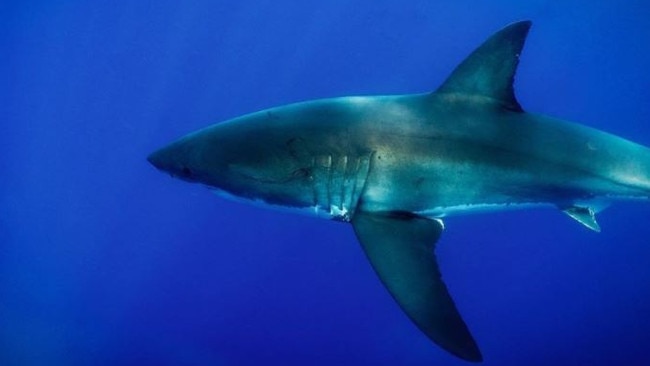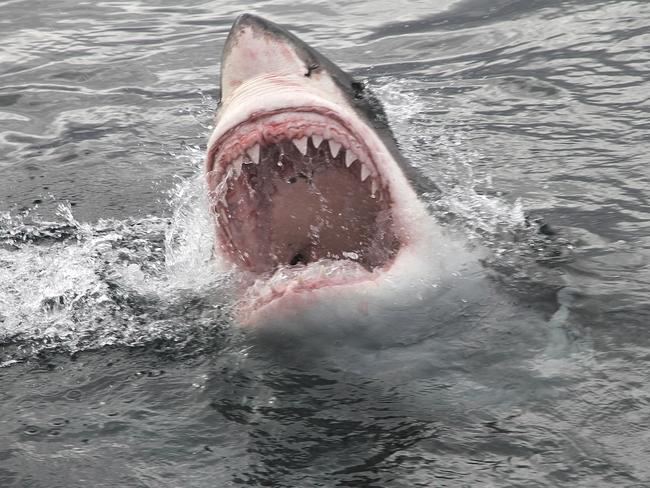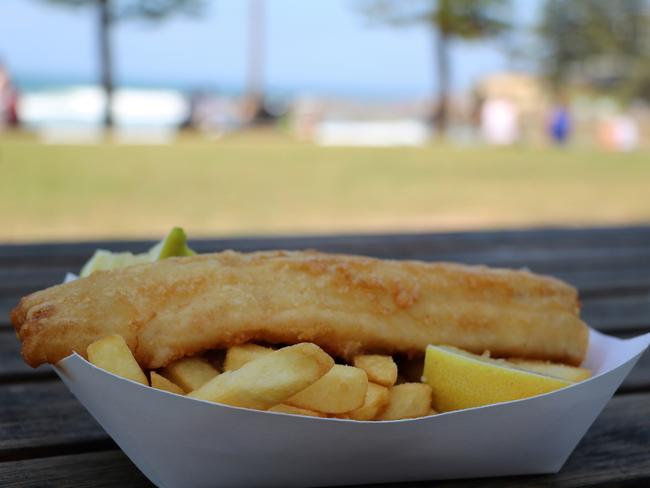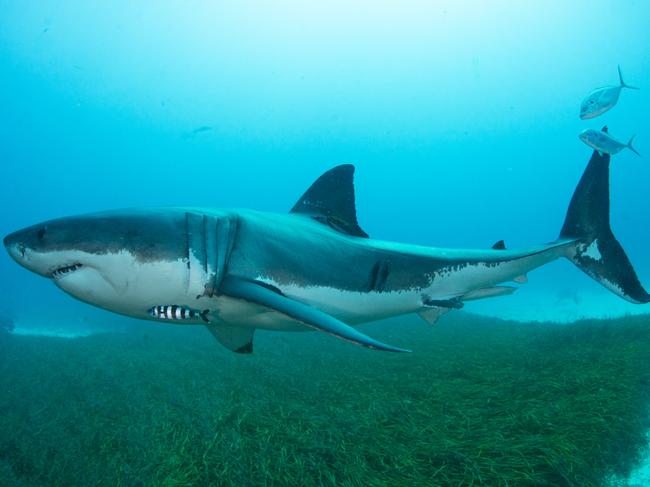Shocking new data on shark numbers
A horror year for fatal attacks has left many thinking shark populations are out of control, but a new global count suggests the exact opposite.

Animals
Don't miss out on the headlines from Animals. Followed categories will be added to My News.
Shark and ray populations in the world’s oceans have plunged 71 per cent since 1970, according to a global study published today, prompting calls for urgent reform in fishing practices and seafood labelling.
Researchers from James Cook and Charles Darwin universities contributed to the Nature study, which revealed that of 31 oceanic species of sharks and rays studied, 24 are now threatened with extinction, and three are critically endangered.
Adjunct Professor at James Cook University Colin Simpfendorfer told News Corp Australia the decline was akin to the collapse in global whale numbers that occurred before most nations stopped whaling in the 1980s.
“There are some species of shark that are getting close to that point; we’ve seen the numbers decline to very low numbers,” he said.
“If nations don’t act in the near future these species are going to start to disappear from our oceans, and we’re going to need to deal with a future that has an ocean without sharks.”

Some would presume that’s a good thing, given the number of attacks on humans in recent years, but according to conservationist Lawrence Chlebeck from the Humane Society International, “without sharks it’s actually a much scarier ocean than with them in it”.
Mr Chlebeck said Australia was “doing pretty well compared to the rest of the world in shark conservation,” but more could be done to ensure the flake sold in our fish and chip shops was from the two approved species of shark (gummy and rig) rather than endangered varieties.
“The enforcement of this regulation leaves a lot of to be desired and it really hasn’t been taken on board by the seafood industry yet,” he said. “But even when consumers want to do the right thing by not eating endangered and threatened species it’s really difficult for them when they’re at the fish and chip shop and all they see is ‘flake’. We need to do a better job at labelling.”
Even taste tests were insufficient, Mr Chlebeck said, as most shark and ray flesh tasted similar.
In a statement in December, the Seafood Industry Association (SIA) said “the majority of flake consumed in Australia is sourced from sustainable domestic fisheries,” but there was a need for country-of-origin labelling for seafood sold in the food service sector.
“All seafood sold in the retail sector must be labelled with the country of origin, however as soon as the food is cooked and sold those laws disappear; meaning consumers cannot readily distinguish between sustainable Australian seafood and non-sustainable seafood,” SIA CEO Veronica Papacosta said.
BITE CLUB: Shark attacks in Australia

Australian fishers had been unfairly attacked and criticised for the poor practices of overseas fishers, the SIA said. A federally-funded $600,000 program targeting mental health in the industry was rolled out last October.
A spokesperson for the Australian Fisheries Management Authority said Commonwealth commercial fisheries “are amongst the most well monitored globally, including through independent observers on boats, electronic monitoring, logbook reporting and mandatory GPS tracking on all Commonwealth vessels, backed up by a risk-based compliance and enforcement program.”
AFMA aimed to minimise inadvertent capture of threatened species through a variety of measures, the spokesperson said, including a guidebook for fishers on how to handle sharks and rays.
Prof Simpfendorfer stressed today’s global study tracked the decline of deep ocean animals, which may only occasionally visit Australian coastal waters, but declines had been noted in many species that frequented our coasts.

CSIRO studies of white sharks in Australian waters, for example, showed numbers were “probably stable, maybe increasing a little, but still quite low,” he said.
A “shark report card” on the fish.gov.au website managed by the Fisheries Research and Development Corporation says that of Australia’s sharks, rays and chimaeras, 124 of 194 species were at sustainable levels.
The study comes amid renewed concern about shark numbers in Australian waterways, following a total of eight fatal attacks in 2020 (the highest tally since 1929), and one so far in 2021.
Internationally, there were 10 unprovoked fatal shark attacks in 2020, according to a report released this week by the International Shark Attack File maintained by the Florida Museum. The report suggested a global drop in shark bites in 2020 may have been a by-product of COVID-19 lockdowns, as there were fewer interactions between sharks and human beings.
Originally published as Shocking new data on shark numbers





